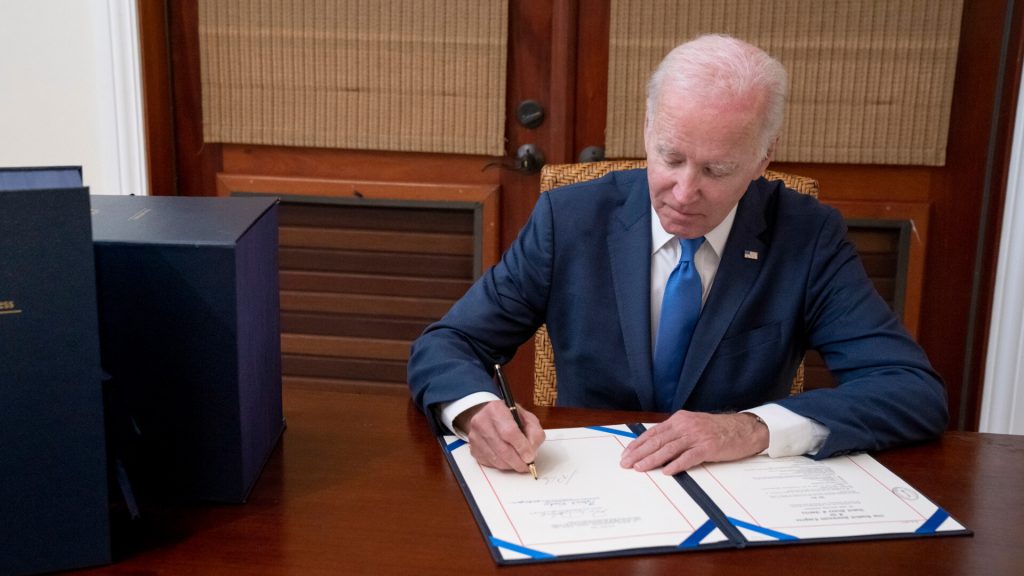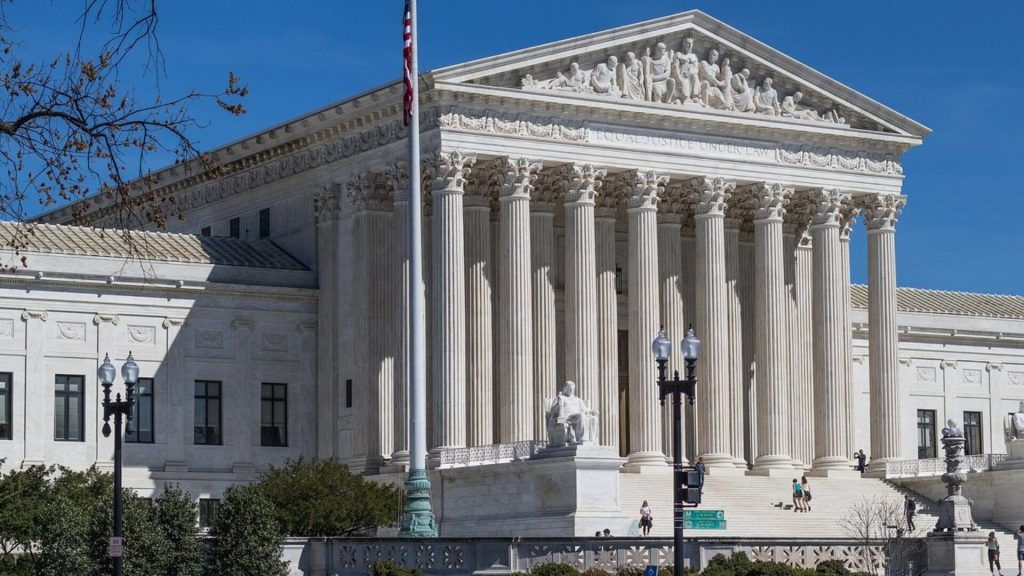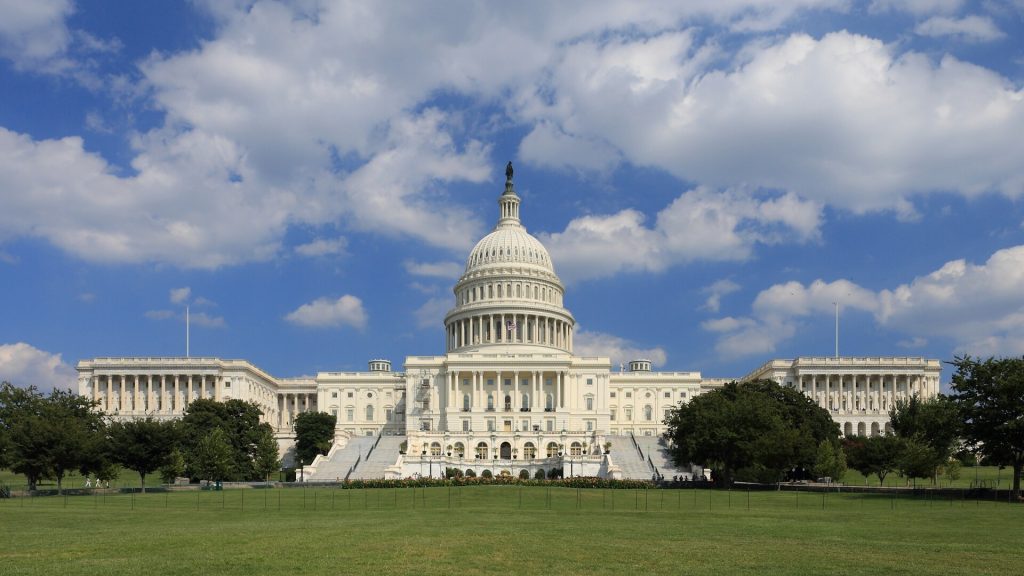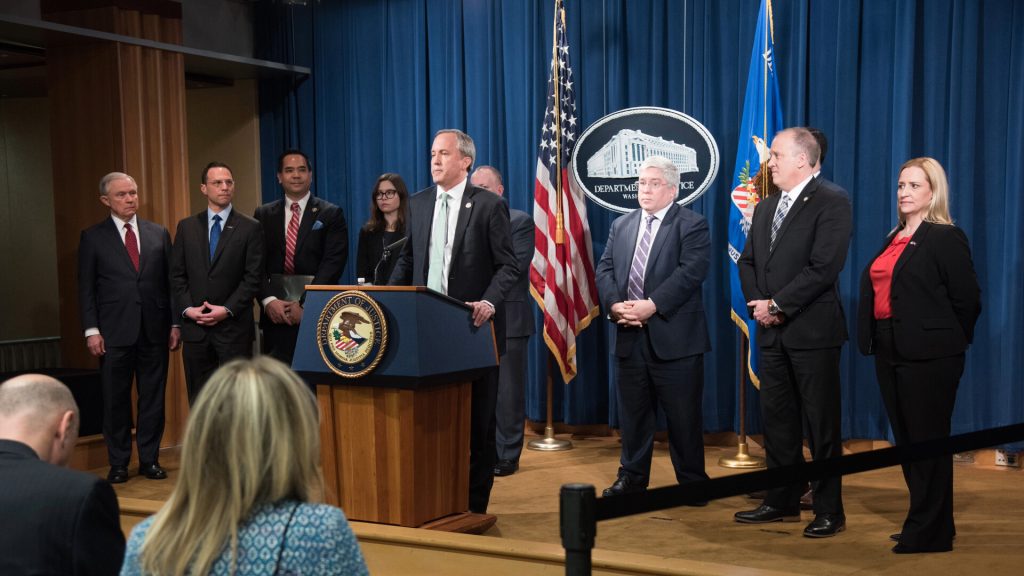A federal judge ruled on Tuesday that the passing of a 13-figure spending bill by President Biden in December 2022 was unconstitutional. Multiple reports confirm that the ruling was based on the lack of a quorum regarding the bill, which was designed to prevent the enforcement of a law regarding pregnant women within the workplace.
The Importance Of The Quorum of Members
According to the ruling, U.S. District Judge James Wesley Hendrix noted that the spending package was improperly passed since a quorum of members were not physically in attendance. The body, which was controlled by the Democrats at the time, allowed proxy voting. Nine Republicans and 215 Democrats supported it.

Hendrix noted that the “power to compel attendance makes little sense divorced from physical presence.” The Senate passed the omnibus bill on December 22, 2022 with a vote of 68-29. The House passed the spending package the following day with a vote of 225-201.
Texas ‘Does Not Seek An Injunction’ Of The Act
Judge Hendrix, who represents the Northern District of Texas, made it clear that the state will not “seek an injunction of… the entire Act.” In addition, he noted that “the Court does not enjoin.”

However, he opened that part of his statement by declaring that the Court found that the “passage of the Consolidated Appropriations Act violated the Constitution.” The statement was published within a 120-page opinion.
Judge Hendrix Highlighted The Quorum Clause Text In Ruling
Hendrix emphasized the wording of the Quorum Clause in his 120-page opinion – specifically the “text, original public meaning, and historical practice.” Hendrix added that the Court reached the conclusion that the clause barred “the creation of a quorum by holding non-present members participating by proxy.”

He further explained that the Supreme Court precedent held the requirement of presence within the Quorum Clause for a long time. According to Hendrix, the Clause’s text distinguished the absent members from the quorum in addition to providing a “mechanism for obtaining a physical quorum by compelling absent members to attend.”
Oregon Senate Bill Invalidated In 2002 Due To Lack Of Quorum
The $1.7 trillion spending package passed by President Biden is not the first time that a lack of quorum has pushed legislation into the spotlight. The Oregon Senate made headlines with the passing of Senate Bill 202 back in 2003.

The bill specifically focused on changes made to property tax laws. However, when it was later ruled that the bill was passed without reaching the necessary quorum of attending senators, the bill was invalidated and the legislative process was reset.
What Is The Consolidated Appropriations Act?
The U.S. Congress passed the Consolidated Appropriations Act to combine multiple individual bills that focused on appropriations into a single bill. The primary focus was the funding of the federal government and its programs, agencies, and other services that would be rendered during the upcoming fiscal year.

This specific act highlighted exactly how allocated funds should be spent within various government departments – including healthcare, defense, transportation and education. There were also provisions that deal with such policy matters as disaster relief, tax provisions, and economic stimuluses.
Two Provisions Of The $1.7 Trillion Act Protect Women And Mothers
There are two specific provisions within the $1.7 trillion Consolidated Appropriations Act of 2023 that focused on protection for women and mothers. The first was referred to as the Providing Urgent Maternal Protections for Nursing Mothers Act (“PUMP Act.”)

The second provision was named the Pregnant Workers Fairness Act (“PWFA.”) The PUMP Act was an amendment to the Fair Labor Standards Act of 1938 (also known as “FLSA”). While the PUMP Act went into effect immediately after the bill was passed, the PFWA went into effect on June 27, 2023.
What Did The PUMP Act Protect?
The PUMP Act was designed to highlight the rights and protections enforced for nursing mothers along with additional clarification. The PUMP Act expanded the protections initially limited by the FLSA in 2010.

For instance, the PUMP Act allowed all hourly and salaried employees to be included in the protection provided with limited exceptions. It moved the break time requirements that targeted nursing mothers to the FLSA section applicable to all employees. It also specified that employers are not mandated to offer paid break time to employees specifically for expressing milk. The PUMP Act did enforce, however, that the time employees spent expressing milk while working would still be considered hours worked and require compensation.
What Is The Pregnant Workers Fairness Act (PWFA)?
The PFWA specifically targeted employers that had at least 15 employees. According to the act, reasonable accommodations must be paid by those employers to any job applicants or employees with temporary mental or physical limitations caused by childbirth, pregnant, or any related conditions.

The line of limitation was drawn if it created an undue hardship for the employer. Some of the reasonable accommodations available for employers to comply with the Pregnant Workers Fairness Act included various seating options, temporary light-duty assignments, and flexible scheduling for prenatal/postnatal appointments.
How The Spending Bill Impacted The National Institutes Of Health (NIH)
The National Institutes of Health (NIH) was reportedly provided a total of $47.5 billion from the Consolidated Appropriations Act of 2023. That was an increase of over 5% of the amount enacted for the 2022 fiscal year.

The bill offered increases to the Clinical and Transitional Science Awards along with the Institutional Development Award programs. There was also a joint explanatory statement issued that highlighted the funding of regional biocontainment laboratories and reporting the use of animals for research purposes.
Research Infrastructure Investments at HBCUs Benefited From The Bill
Historically Black Colleges and Universities (HBCUs) and minority-serving institutions also benefited from the massive spending bill. According to the AAMC, the bill provided $50 million for research infrastructure investments at these institutions along with tribal colleges and universities.

Reports show that there are currently 107 HBCUs throughout the United States that enroll over 228,000 students. Two-thirds of those institutions are public and the majority of them are four-year universities and colleges.
Attorney General Paxton Previously Sued Biden In 2023
Attorney General Ken Paxton sued President Biden along with members from the Biden Administration in February 2023 regarding the same $1.7 trillion bill. He also targeted the “unlawful signing and implementation” of the omnibus spending bill.

Paxton stated that the U.S. Constitution did not “authorize the House to pass trillion-dollar bills when more than half the members are in their homes, vacationing, or are anywhere physically other than the United States Capitol Building.” He added that the founding fathers would be “turning over in their graves” if they saw how former Speaker Nancy Pelosi used the proxy voting option to upend the Constitution.
Paxton Also Sued Biden Administration Over ‘Radical Abortion Agenda‘
Paxton also filed a lawsuit against the Biden Administration last February about direction given to pharmacies related to abortion-inducing medication. The Biden Administration had reminded pharmacies in July of 2022 that they were obligated to not discriminately fill prescriptions – specifically noting abortion-inducing drugs along with other treatment medications.

Paxton issued a statement after filing the lawsuit indicating that the Biden Administration knew it had “no legal authority to institute this radical abortion agenda.” He added that it was trying to “intimidate every pharmacy in America by threatening to withhold federal funds.”






